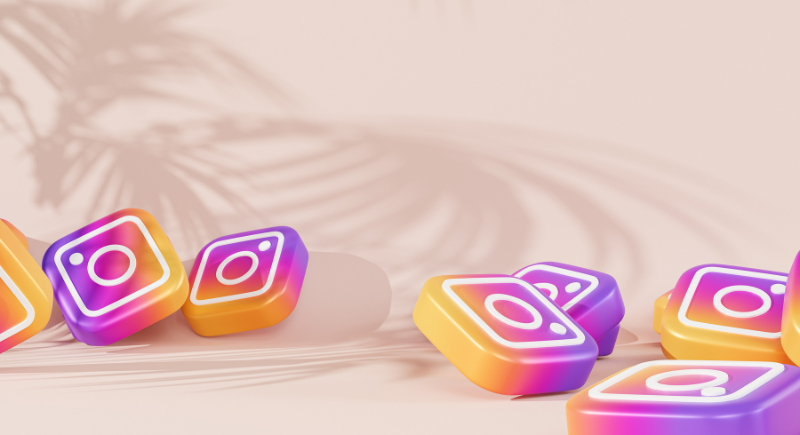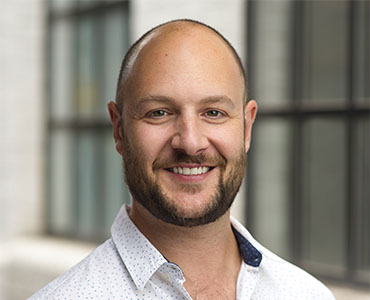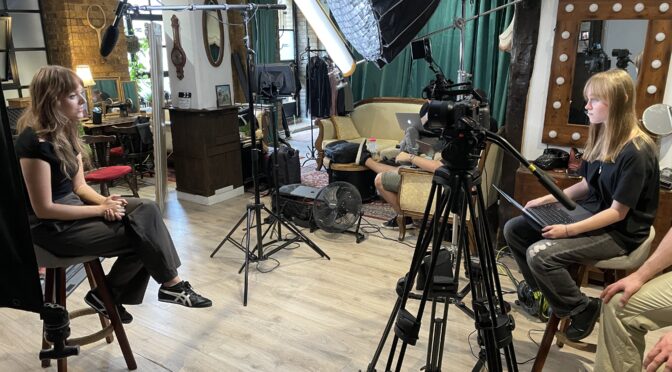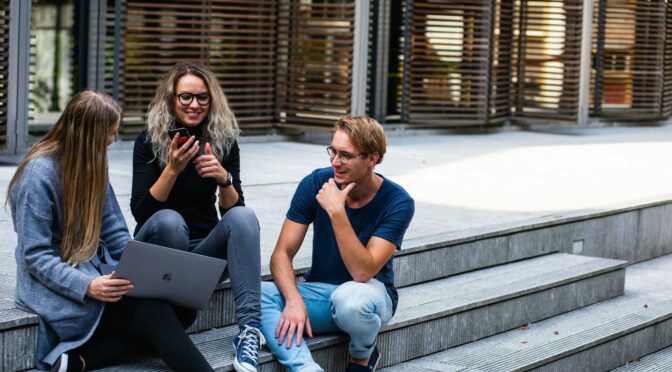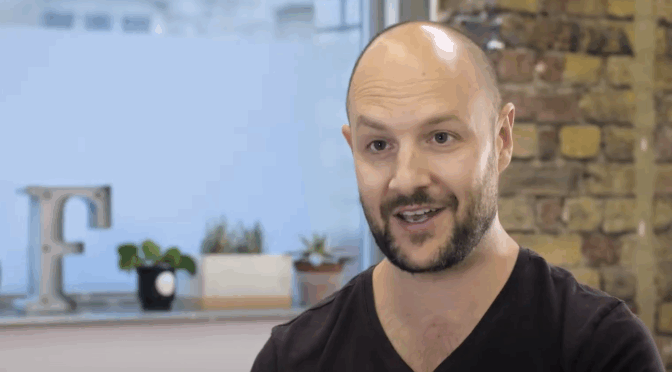In this episode of the Big Chat podcast, our Founder George Hughes is joined by Lisa Targett. Lisa is the Chief Revenue Offices for the influencer marketing platform Tribe. Tribe is a unique self-serve marketplace that makes it easy for brands to connect with everyday influencers.
Lisa was listed in the Drum’s 50 under 30 and named one of Diversity Journal’s ‘Women Worth Watching’ in 2018. Widely acknowledged as a thought leader, Lisa has delivered keynotes at major marketing events and frequently comments on industry news for international publications.
In this podcast, we explore the world of influencer marketing. So if you’re keen to learn more about this type of social media marketing, then listen to the full-length podcast. Read below for a snapshot of our interview with Lisa.
Spotify: https://spoti.fi/3gu05Y7
iTunes: https://apple.co/3gqmx4f
George Hughes: You came to the UK, and one of the first jobs you did was working with Franks, which is an Australian men’s swimwear brand. What brought you from there to where you are today? How did you make that transition into the influencer world?
Lisa Targett: My background has always been in digital marketing and digital advertising, and I think very naturally, we saw an emergence of where consumer eyeballs were, and attention and trust was, and if you’re any kind of digital marketer that knows that you’re trying to elicit some sort of response from an audience, make them feel something about your brand and potentially sway them to consider your product, you’ve got to go where the trust is, and you’ve got to go where the eyeballs are so that slowly led me down the path of working with creators and I’m so glad it did because it’s such an exciting space.
George: For anybody that’s not familiar with the company and how the platform works, just explain to us how that actually works.
Lisa: Tribe is an influencer marketplace, we’re a self-serve marketplace that connects brands with everyday people to celebrate them through beautiful content. So it’s a content upfront model which hasn’t been replicated globally, which gives brands a huge amount of brand safety on one side, they see the content, they can vet the influencer, they see the caption, they avoid any PR crises that could be imaginable. And on the influencer side, it’s great because at the end of the day, they’re professional content creators. They’re creating content all the time, they’re crafting content all the time, if they’re authentic with their audiences and they are real customers then they’ve got no issue with going out, shooting a piece of content, owning the product, these are things that they’re happy to do and happy to spend their money on if they’re genuine about it. So what we’ve created is this two-sided marketplace that self-polices for as much integrity in this category as we can pack in there.
George: There’s a really vast breadth of knowledge about influencer marketing to the point where some people know nothing about it, other people are in advanced level five, they know how to use it to the nth degree like I’m sure you do. Give us an overview of what is an influencer, how many people do you have to have to be an influencer?
Lisa: Our platform starts at three thousand followers, so if you have three thousand followers on either Instagram, Twitter, or Facebook, you can freely submit to any brand brief. We chose three thousand as a semi-arbitrary number, but also we thought even for one post you’re reaching a significant amount of people. An organic reach actually starts to drop off on Instagram specifically as your audience grows and your engagement drops, because if I comment on Kim Kardashian’s post, she’s not responding, and by the time I’ve actually written it probably a hundred thousand more comments have appeared or something, and I just get lost and actually people just don’t feel they can be part of those communities whereas with my friends and family it’s far more interactive, it’s back and forth.
George: The rise of influencer marketing, I mean just the rise of influencers in general, it’s been such a bizarre phenomenon in a way, what do you think has been behind this trend?
Lisa: We were able to start freely posting media so the democratisation of media was the catalyst for all of this. That I can set up a camera in my bedroom and post things to YouTube, and people watch them has meant that all of a sudden, we’re not all gathered around the television at night together, we are consuming media in a really fragmented sense and what was happening is people’s voices were being heard, and everything turned from being broadcast media that was forced at me to this world of opt-in media where I get to choose who to follow, and I get to choose who to unfollow as well and where I spend my time, and if you’re holding someone’s attention, you have influence.
George: What do you think about the negative connotations that sometimes are assigned to influencer marketing? How do you navigate that side of things?
Lisa: With clarity for both brands and influencers, and for me, the most exciting bit about being a two-sided marketplace is we have that responsibility to educate both sides equally. For me, the entire category will disappear if it lacks authenticity or impacts the trust and the social nature of the channel, the first thing is around being a real customer, being a real advocate. At the end of the day, there are a billion users on Instagram alone, you’re going to find enough real brand advocates that are going to recommend your product to their followers. I suppose this is also about influencers being protected, so they don’t get exploited by brands. We’ve seen a couple of influencers become poster children for things that they didn’t think they were doing wrong. What they found was a product that they really love, that when they were making a specific claim about it would actually endanger other people, and that’s the kind of natural problem you get on influencer marketing which is you’re working with everyday people you’re not working with professionals, so we quality check all of the campaigns that come into the platform to make sure that they adhere with all advertising regulation even if that regulation hasn’t been applied to influencer marketing specifically.
George: What do you think is next for the world of influencer marketing?
Lisa: I think we’re going to see more and more brands using customer-generated content across their entire branding ecosystem in partnership with some of the hero storytelling that they’re doing from an above-the-line perspective, I think personalisation from an advertising-targeting perspective will get better because people will be able to leverage all of their different customers’ styles and voices in their advertising. But I think taking a step beyond all of that, Facebook and Instagram are always going to be the ones that are driving the best performance marketing for a brand. They’ve got precision targeting, they’ve got the tools, they’ve got the scale to drive outcomes for brands, and they’re never going to allow that to happen from a third-party perspective. Influencers will play a massive role in driving a multitude of digital shop fronts on Instagram essentially, and that’s what it will become.
George: What would be your one piece of advice for brands if they’re looking to get an edge in today’s world?
Lisa: Right now, it is so competitive for any brand online, they’re either fundamentally changing how they’re producing products, they’re either having to fundamentally change their supply chain model to be more sustainable, more ethical to align with customer values, they’ve got issues with trust, and while all of that’s happening, they’re making these monumental shifts into the digital age. My advice would be to centre yourself around the consumer so that you can move faster and trust a little bit more in the instant feedback that you’re getting. We do sentiment analysis on every campaign where we can pull through all the comments, not just if people love the campaign or not and love your brand, but specifically, what they’re liking I think the brands that are winning quickly are doing that very well.
Listen to the full Small Films Big Chat podcast over on iTunes or Spotify.
